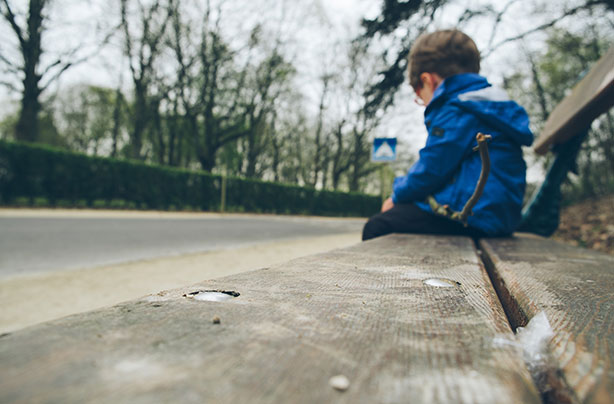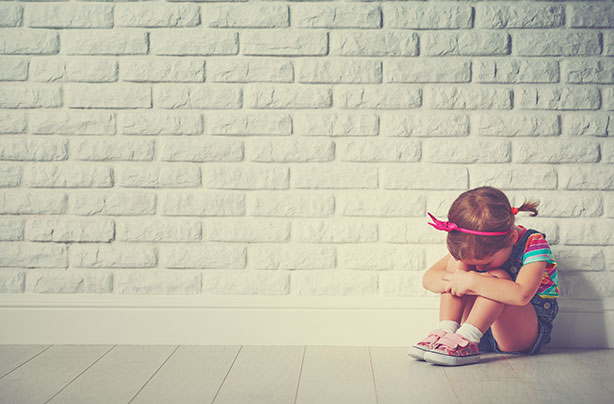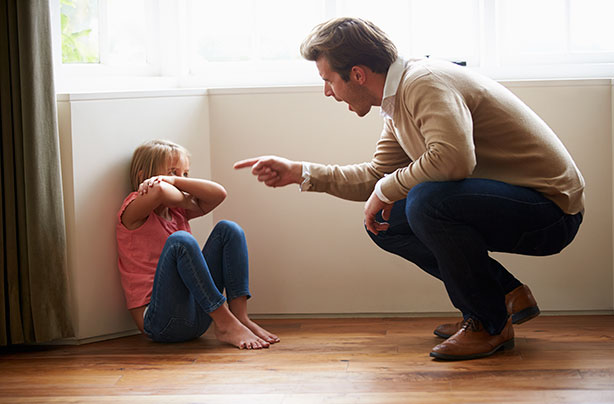What age is it OK to leave your kids home alone?
How do you know when it's OK to leave your kids home alone? We've got all the facts you need to make an easy decision and make sure your kids are safe

Is it ever OK to leave your kids home alone? Surely, if you're just popping out for five minutes there's no harm? Or if they're asleep, it's OK, right?
Leaving your kids to stay home alone is always a difficult decision for any parent to make. On the one hand you feel you know your kids and you know they're sensible, but on the other hand you worry that something might happen and you won't be there to help them.
Here, we explain the expert advice around the age it's ok to leave your kids at home alone...
What age is it OK to leave your kids home alone?
We asked you on the GoodtoKnow Facebook page 'at what age do you think it's ok to leave a child home alone?', with the following results:
- 50% said at age 14 - 16
- 30% said at age 11 - 13
- 17% said at age 16+
- 1% said at age 8 - 10
What does the law say?
Surprisingly, in this country there are no specific laws governing at what age you can leave your kids on their own, or for how long children can be left home alone. However, under the Children and Young Persons Act 1933, parents in England and Wales can be prosecuted for wilful neglect if they leave a child unsupervised 'in a manner likely to cause unnecessary suffering or injury to health'.

What does neglect mean?
Usually neglect means the parent has failed to provide basic care, such as proper food, clean, warm clothing, hasn't given clear instructions on what to do in an emergency and hasn't tried to prevent any dangers, such as leaving out medicines, alcohol, drugs and dangerous objects.
Neglect can also mean that the child is often left on their own, even if they are well cared for in other ways.
GoodtoKnow Newsletter
Parenting advice, hot topics, best buys and family finance tips delivered straight to your inbox.
When it comes to court cases or issues involving social services the term neglect can be open for discussion because the law isn't crystal clear on what is meant by neglect, suffering or injury to health.
The penalty for child neglect can be anything from a fine to up to 10 years in prison.
Can lack of emotional support be classed as neglect?
Neglect isn't just about the physical care of a child - emotional care and safety are just as important.
The NSPCC says that emotional well-being is just as important as the child's physical needs. 'We know that children who are left for quite a short period of time feel lonely and isolated and they don't like it. They like to have company.'

When is a child old enough to be left alone?
Childcare experts understand that every child is different - some are very mature at 13, others are still very immature at 15 or 16. By and large, most parents are sensible and know whether they can leave their children for short periods of time.
The NSPCC has these guidelines:
- Never leave babies or young children alone, even if they're sleeping
- Most children under the age of 12 aren't mature enough to stay home alone for more than a short time
- No child under the age of 16 should be left alone overnight
- Parents and carers can be prosecuted for neglect if it is judged that they placed a child at risk by leaving them at home alone
- If you have no other option and you have to leave children home alone, give them very clear instructions about what to do if there is an emergency or if they are worried about anything. Leave a list of phone numbers of people you trust to call if they're worried or frightened
- Don't leave out anything that could cause them any harm, such as medicine, alcohol, electrical devices or dangerous objects
- If you're leaving teenagers home alone, make sure that they are totally happy about the arrangement and that they feel safe
- If a child has additional needs, these should be considered when leaving them at home alone or with an older sibling
- When leaving a younger child with an older sibling think about what may happen if they were to have a falling out - would they both be safe?
How do I choose a childminder or babysitter?
The difference between a childminder and a babysitter is that a childminder should be qualified and be registered with the local authority. Babysitters don't need any qualifications or registration.
If you're looking for a babysitter, remember that children under 16 can't be held responsible for any harm that comes to your child while they're looking after them. And that while many 16 year olds are sensible, some aren't.
- Always look for recommendations and experience and if your gut feeling tells you they're not right for you, trust your instinct
- For a babysitter or childminder ask for at least two references and check them properly
- Whether you're hiring a babysitter or childminder remember to give them clear instructions about what to do in an emergency and useful contact numbers in case of emergency or any other query
- If you're worried about someone else's kids don't be afraid to speak to someone. The NSPCC has lots of great advice online or you can call them on 0808 800 5000.
- If you are a child and you are worried about someone who looks after you contact the NSPCC or call 0800 1111
At what age would you feel comfortable leaving your child home alone? Let us know in the comments below
Trusted, informative, and empathetic – GoodToKnow is the ultimate online destination for parents. At GoodtoKnow, our mission is 'simple': we're trying to make sense of parenthood. On the site, you'll find everything you need for a happy, healthy family life. Our huge archive of content includes more than 18,000 articles and 1,500 how-to videos. These include expert-backed advice features on parenting, dealing with relationship changes after having a baby, self-care for mums and managing your family finances. We also feature tried-and-tested product reviews and buying recommendations for every stage of family life - from prams and Moses baskets to birthday gifts and top toys.